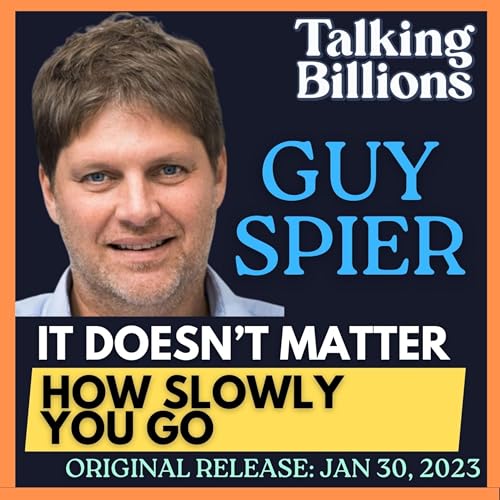Drew Cohen is the founder of Speedwell Research and a portfolio manager at Davidson Kahn Capital Management, who uncovers competitive advantages by reading entire company histories spanning decades of transcripts and annual reports.
The episode is sponsored by TenzingMEMO — the AI-powered market intelligence platform I use daily for smarter company analysis. Code BILLIONS gets you an extended trial + 10% off.
https://www.tenzingmemo.com/
3:00 - Drew describes his early money attraction, collecting dollar bills at age five and discovering the power of interest at his bar mitzvah, leading his father to introduce him to stocks.
5:00 - First investing experiences: buying leveraged ETFs at 14, making $100 in two minutes, then immediately losing $100, learning markets can create and destroy wealth quickly.
8:00 - Exploration of technical analysis through Dow Theory and Elliott Wave, realizing these pattern-based approaches kept adding rules to fit outcomes, concluding they were “BS” and abandoning them.
10:00 - Discovering “The Snowball” at 17 changed everything, learning Buffett’s lessons without having to lose more money personally through trial and error.
15:00 - Deep research methodology explained: reading every transcript and annual report since IPO to find patterns that map onto future transitions and understand how companies behave under different conditions.
20:00 - Meta example: three instances of monetization fears (desktop to mobile, feed to stories, stories to Reels) that all proved unfounded when studying company history.
23:00 - Copart case study: finding one 2004 earnings call where they mentioned market share, crucial data point never discussed again but essential for understanding current competitive position.
35:00 - Discussion of reading as filtering mechanism: eliminates 95% of companies immediately, leaving only truly interesting businesses worth deeper analysis.
45:00 - Career trajectory: Goldman Sachs sell-side to Capital Group buy-side, learning institutional constraints firsthand before founding independent research firm.
55:00 - Sell-side research revelation: buy ratings are relative to coverage universe, not absolute recommendations, creating fundamental misunderstanding of analyst intentions.
57:00 - Buy-side problems: short-term performance pressures, peer judgment, window dressing (adding Nvidia when it’s hot to satisfy clients), non-investment prerogatives polluting decisions.
59:00 - Buffett’s genius: structuring Berkshire with long-term capital he controlled, avoiding quarterly performance pressures that would have produced completely different results.
1:00:23 - Success definition: doing what you want each day without trading tomorrow for today, echoing Naval’s concept that you’re retired when you stop deferring gratification.
Podcast Program – Disclosure Statement
Blue Infinitas Capital, LLC is a registered investment adviser and the opinions expressed by the Firm’s employees and podcast guests on this show are their own and do not reflect the opinions of Blue Infinitas Capital, LLC. All statements and opinions expressed are based upon information considered reliable although it should not be relied upon as such. Any statements or opinions are subject to change without notice.
Information presented is for educational purposes only and does not intend to make an offer or solicitation for the sale or purchase of any specific securities, investments, or investment strategies. Investments involve risk and unless otherwise stated, are not guaranteed.
 Feb 27 20261 h y 16 m
Feb 27 20261 h y 16 m 41 m
41 m 1 h y 10 m
1 h y 10 m 1 h y 18 m
1 h y 18 m 1 h y 14 m
1 h y 14 m 1 h y 21 m
1 h y 21 m 1 h y 8 m
1 h y 8 m Jan 30 20261 h y 14 m
Jan 30 20261 h y 14 m
